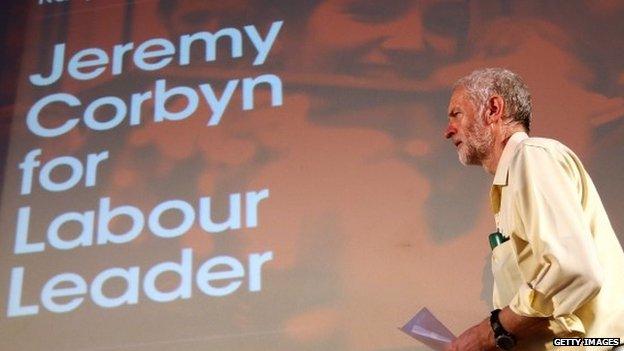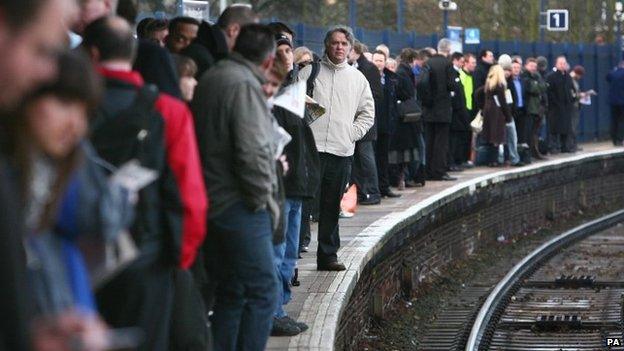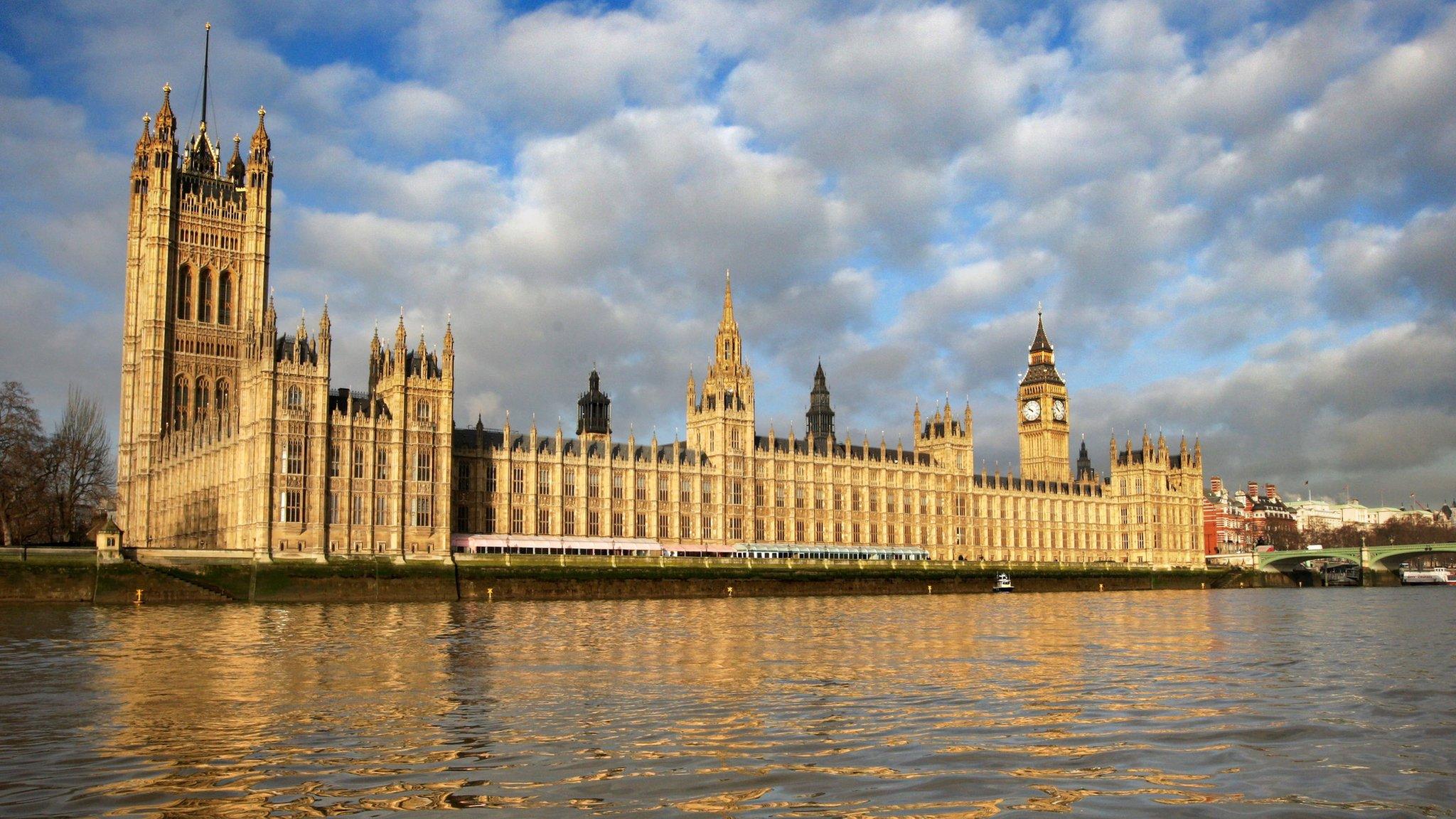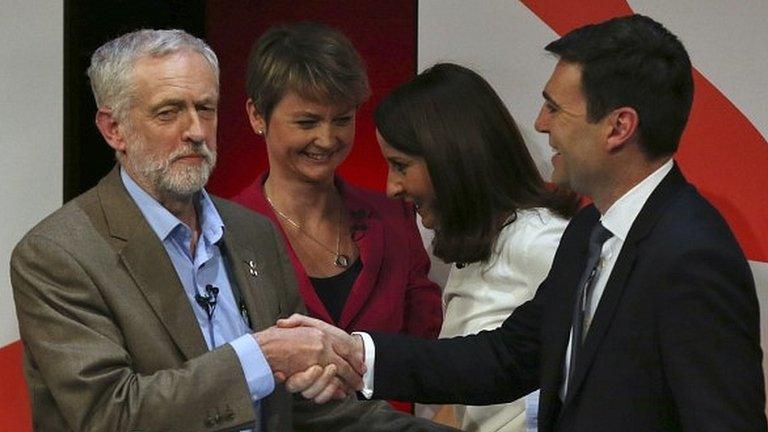Jeremy Corbyn plan to 'reindustrialise' northern England
- Published

Jeremy Corbyn has called for a "fundamental shift" in economic policy
Jeremy Corbyn has called for the "re-industrialisation" of the north of England by boosting spending on the arts, transport, housing and broadband.
In a speech in Leeds, he said Conservative plans for a northern powerhouse were a "cruel deception".
But a senior councillor said the MP was "ignoring" what Labour was doing.
Mr Corbyn also said David Cameron should apologise for the treatment of miners in the North of England in the 1980s.
He called for an inquiry into the violent clashes at Orgreave coking plant in South Yorkshire during the 1984-85 strike.
Follow all the day's developments as they happen with Politics Live
Meanwhile, rival Andy Burnham has pledged to cut the cost of rail travel for part-time workers with season tickets, saying they should only pay for the days they travel rather than the whole week.
Yvette Cooper and Liz Kendall are the other two candidates in the contest. Ballot papers will be sent out on 14 August, with the result to be announced at a special conference on 12 September.
Mr Corbyn is the only candidate calling for a major increase in public spending to support economic growth and job creation but his plans have been criticised as "starry-eyed" by shadow chancellor Chris Leslie, who says they are not economically credible and will end up hurting the poor.
As he continues to come under attack from those on the right of the party, Mr Corbyn - who has the most support from constituency parties and unions - is setting out details of how he would "fundamentally shift" the UK's economic base towards increased public investment and away from further austerity.
'Crude cuts'
In a campaign event in Leeds, he unveiled his vision for the north of England, which he says has been informed by the views of more than 1,000 Labour supporters.
He wants an overhaul of existing Local Economic Partnerships and new investment institutions "rooted" in the north.
He is calling for "fully funded" bus services under local control, the rollout of superfast broadband in towns and rural areas, a big increase in affordable housing and a reprioritisation of arts funding towards the north.

The financial pressure on part-time workers needed to be addressed, Andy Burnham says
"It is in the long-term interest of the UK to rebuild a resilient industrial base and, with its people, energy, land and water, the north of England is the place to lead this," he said.
He said local economic partnerships created under the coalition government were too often at the whim of central government and lacked the "scope, capacity and scale" to spearhead the investment required.
They should be superseded by "new investment institutions rooted in the Northern economy to ensure deep regeneration".
'Freedom to innovate'
He also attacked Conservative plans for elected mayors in Greater Manchester and other metro regions, arguing that it was wrong for them to be imposed without public approval via a referendum.
He added: "There is a lack of faith in the Conservatives' Northern powerhouse agenda which combines power cuts for rail electrification with the devolution of crude cuts.
"Despite this, the need for reindustrialising the north of England and providing the investment and freedom to innovate and prioritise has never been stronger."
But Sir Richard Leese, the Labour leader of Manchester Council who has backed Chancellor George Osborne's plans to devolve NHS and social care budgets to combined authorities in the region, tweeted, external: "Corbyn completely ignores what Labour in the north is doing."
And the Centre for Cities think-tank said the focus should be on attracting jobs in knowledge-intensive, global industries to a region which, with the exception of Manchester and Leeds, was falling behind in that regard.
"Our research shows that the most successful cities are those that do not simply replicate the past or try to revive old industries, but instead reinvent themselves by investing in and attracting highly skilled people and jobs across different sectors," said its chief executive Alexandra Jones.
Laying out more of his policies, Mr Burnham has pledged to help the millions of part-time workers in the UK by reviewing the cost of childcare, extending flexible working and job shares and cutting the cost of rail travel for those working part-time.
"We need to tackle the inequalities that stifle growth and productivity by preventing women from reaching their full potential in the workplace," he said.
- Published4 August 2015

- Published12 September 2015
